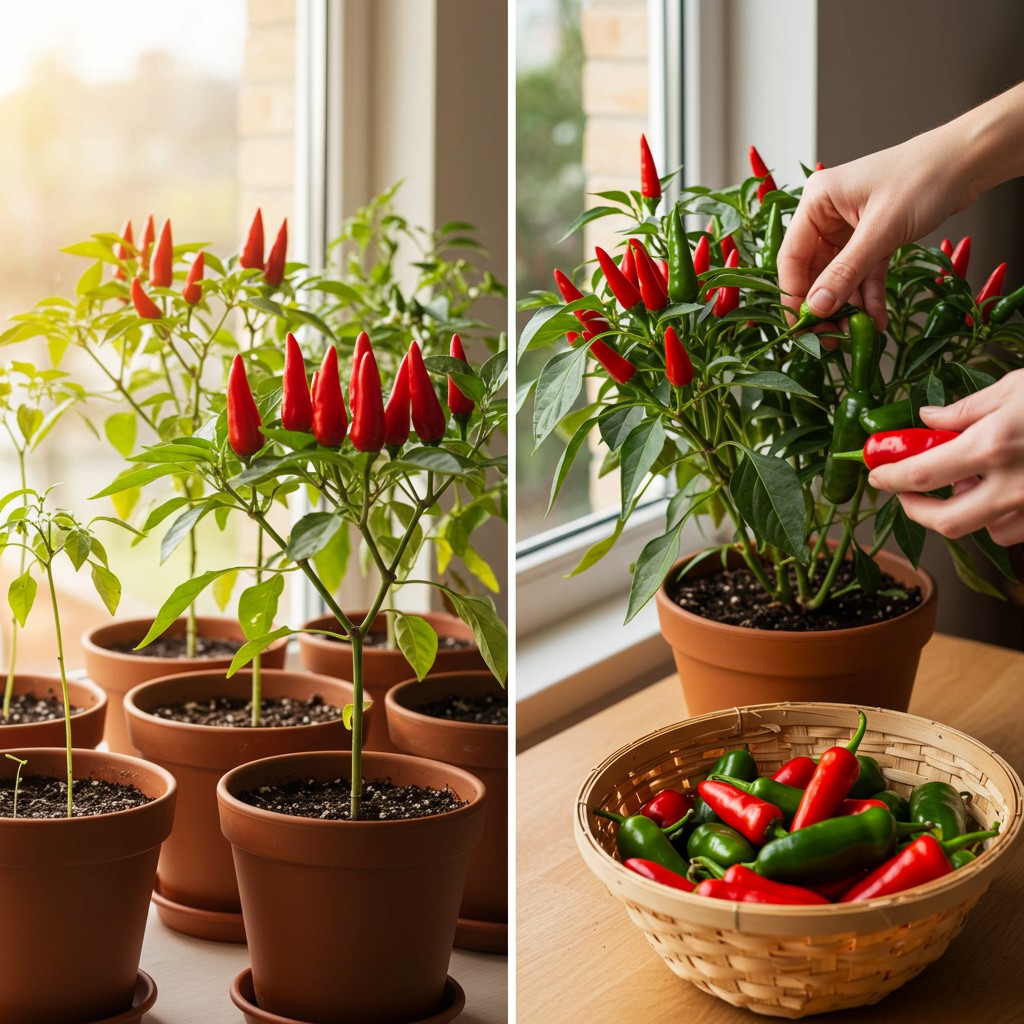Prepare the Planting Area:
Start by creating a circle around the base of the plant. Make sure the circle is about 5 to 10 centimeters (about 2 to 4 inches) from the stem. This is where you’ll apply the fertilizer.
Apply the Fertilizer:
Spread the mixed fertilizer evenly within the circle you’ve created. You’ll need approximately 200 grams of cow manure, 200 grams of worm castings, and 50 grams of cottonseed meal or castor bean cake. You can use your hands or a gardening tool to scatter the fertilizer evenly.
Incorporate the Fertilizer:
After applying the fertilizer, gently mix it into the soil with your hands or a small rake. This helps the nutrients penetrate the soil and reach the plant’s roots.
Cover the Fertilizer:
Once the fertilizer is mixed into the soil, cover it back with the soil you initially removed when creating the circle. The soil will now be enriched with organic nutrients that your pepper plant needs to thrive.
Why This Works
The key to a healthy pepper plant lies in its soil. By using organic fertilizers like cow manure and worm castings, you provide your plant with a steady supply of essential nutrients. These fertilizers not only feed the plant but also improve soil structure and promote beneficial microbial activity, which helps the plant absorb nutrients more effectively.
Cottonseed meal or castor bean cake helps with flower and fruit production. These organic fertilizers are especially important because they give the plant the nutrients it needs to stay healthy, strong, and productive. If the plant is properly nourished, it will be more resistant to pests and diseases, making it less likely to suffer from issues like pest infestations or fungal problems.
The Role of Soil Health in Preventing Pests
Healthy soil is essential for preventing pest infestations. When your soil is nutrient-rich and the plant is thriving, it becomes less vulnerable to pests. On the other hand, if your soil lacks nutrients, your plant will become stressed and weak, which attracts pests that feed on the plant. By fertilizing your pepper plants with organic materials, you can help them stay strong and healthy, making them less likely to fall prey to pests.
Troubleshooting Common Issues
If you notice that your pepper plant still isn’t producing flowers or fruit, or if pests are a recurring problem, here are a few additional tips:
Ensure Consistent Watering: Make sure your pepper plants are getting enough water, but avoid overwatering, which can lead to root rot.
Check for Pests: Regularly inspect your plants for signs of pests. If you see pests, use natural remedies like neem oil or insecticidal soap.
Increase Sun Exposure: Peppers need plenty of sunlight to thrive. Ensure your plant gets at least 6 hours of direct sunlight each day.
Conclusion
By using organic fertilizers such as cow manure, worm castings, and cottonseed meal, you can improve the health of your pepper plants and boost their ability to produce flowers and fruits. With these simple and natural methods, you’ll be able to enjoy a flourishing pepper plant, free from pests and full of delicious, homegrown peppers.
ADVERTISEMENT

